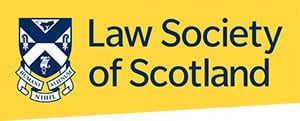

| Rolls-Royce







Mark Gregory
| Rolls-Royce
General counsel | Rolls-Royce
General counsel | Rolls-Royce
General counsel | Rolls-Royce
Team size: 500 overall with around 40 lawyers What are the most important transactions, litigations or other major projects that you have been involved in during the last year? The...
Real Estate, Transport and Infrastructure | Rolls-Royce
Team size: 70 Major law firms used: Eversheds Sutherland, Slaughter and May ‘It’s been a hell of a busy year,’ reflects Rolls-Royce GC Mark Gregory. The back end of a...
Team size: 450
Major legal advisers: DLA Piper, Eversheds Sutherland, Pinsent Masons, Slaughter and May
Rolls-Royce GC Mark Gregory joined the company in 2005. A decade later he stepped into the top legal role, becoming one of the FTSE 100’s youngest GCs at just 39 years old. The environment he entered was far from cushy: the Serious Fraud Office and US Department of Justice were investigating the company, a new chief executive, profit warnings and an activist investor.
Gregory is now the company’s third longest-serving member of the executive team. He is said to command a huge amount of respect, being leaned on often by chief executive Warren East. A few years into the job, that global criminal investigation was resolved with deferred prosecution agreements, a new strategy developed and a restructuring programme, among other things, affecting 4,600 jobs, was implemented.
‘Mark is now leading on the cultural change programme, training and changing the business’ approach to ethics and compliance – he’s heavily involved in the transformation of the wider business,’ comments Keri Rees, co-head the global company and commercial practice at one of Rolls-Royce’s preferred advisers, Eversheds Sutherland. ‘He’s relied on as a guy with historical insight and has been elevated from legal to the board where he’s not just a GC and commands a phenomenal amount of respect.’
Gregory leads about 450 staff across the globe, including 70 lawyers, and is responsible for 12 different functions in the group, including legal, company secretary, ethics and compliance, internal audit, risk management, export control and sustainability.
He says the cultural change programme means improving how people feel when they come into work. That includes making things such as risk management part of people’s day-to-day thinking without giving them ‘initiative fatigue’, and creating an environment in which people can be at their best and have accountability.
Specific projects driven by the team include moving away from a paper-based, 30-page code of conduct to an app that is on everybody’s phone and is available offline, as well as an ethics phone line. More specific guidelines have been provided around mandatory training and mental health, and bullying and harassment policies have been reassessed.
‘It’s moving from writing down policy to appealing to human beings. We are an organisation of about 50,000 people and it’s too easy for functions like legal or compliance to forget that. Nobody comes to work planning on doing bad things. We therefore need to create an environment that allows them to function rather than just dictate policy and process. There’s nothing wrong with a code of conduct that says: “If your gut is churning as you make this decision, then it’s time to pause and think.”’
Coupled with that is creating a culture where people feel comfortable speaking out – not just around ethical issues but also product and process safety – even when the consequence of that may be financially detrimental to the business. Tone from the top is crucial, Gregory says, while the company introduced an updated, stripped down employee opinion survey that asks questions such as whether people feel comfortable calling out issues.
One of the more controversial questions, Gregory says, is: ‘Do you have a best friend at work?’
‘Engineers and lawyers respond to that in a very literal way and then you have to go through what’s behind that question. Culture is an over-used word, but culture is how people feel when they come into work. That’s influenced by their behaviours and other people’s behaviours. I could kill an entire cultural journey if I didn’t behave in a way that I’ve asked other people to behave.’
This is where Gregory’s relatively long tenure at the company provides crucial context for the executive board. Before taking the GC role he moved frequently between different parts of the business for ten years. ‘That gave me such exposure to lots of different levels that not necessarily all of the executives here have had. It allows you to get a sense of what’s really happening.’
Gregory is Rolls-Royce’s executive sponsor for diversity and inclusion – he is a signatory on the diversity letter close to 100 GCs have signed and sent to their external advisers – as well as driving the company’s broader sustainability strategy.